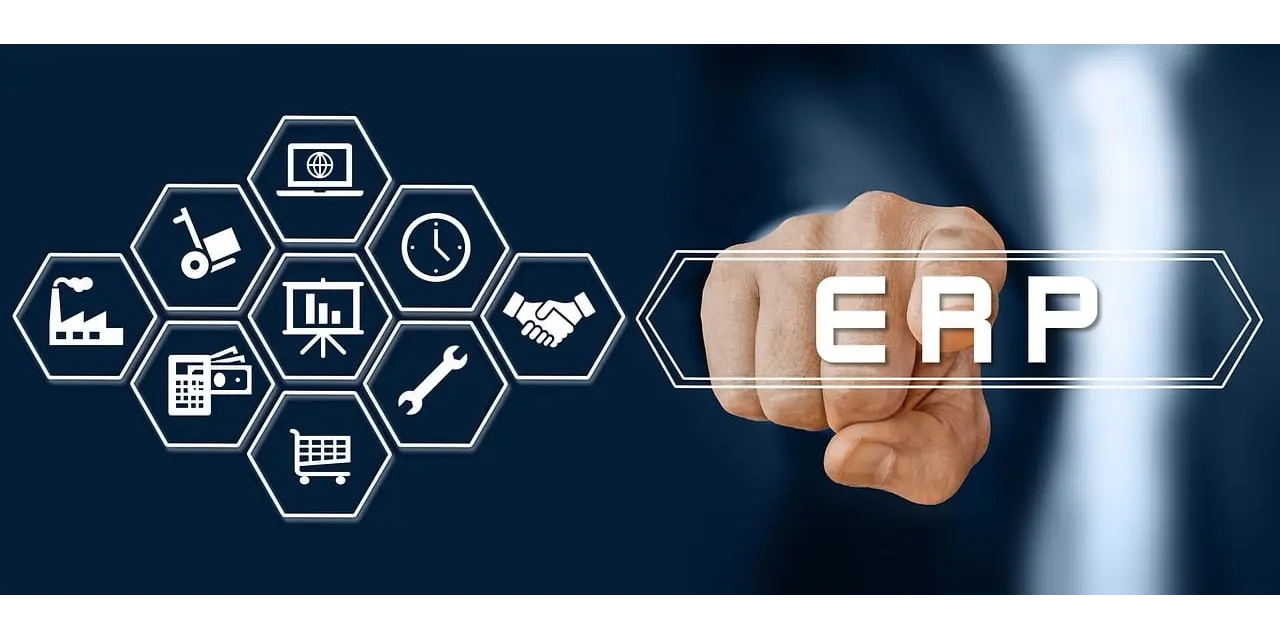In order to answer your request, we are obligated to process the data given above. Sometimes, however, we would like to use them for slightly different purposes, such as statistical data or informing you about our new products and services.We promise that we will use the given information for communication purposes only. We also remind you that you can unsubscribe from our mailing at any time (see Privacy Policy).
What is ERP and Why Should You Care?
ERP stands for Enterprise Resource Planning. In essence, it's a suite of integrated software applications that help businesses manage their core processes, from accounting and inventory to customer relationship management (CRM) and supply chain operations.
Why is ERP a game-changer for e-commerce in Poland? Imagine a symphony orchestra where each instrument plays its part, perfectly coordinated to create beautiful music. That's what ERP does for your online store. It harmonises all your different systems, ensuring smooth operations and data flow across every aspect of your business.
Benefits of ERP for E-Commerce in Poland:
- Streamlined Operations: ERP automates repetitive tasks, eliminates manual data entry, and integrates disparate systems. This means fewer errors, faster order processing, and improved efficiency across the board, essential in the fast-paced Polish e-commerce market.
- Data-Driven Decisions: With real-time access to accurate data, you can make informed decisions about inventory levels, pricing, marketing campaigns, and more. ERP empowers you to respond quickly to market trends and customer demands specific to Poland.
- Enhanced Customer Experience: By integrating CRM with your ERP, you can personalise customer interactions, track purchase history, and provide excellent customer service. This translates to higher customer satisfaction and loyalty, crucial in the competitive Polish market.
- Improved Inventory Management: ERP systems provide accurate inventory tracking, demand forecasting, and automated reordering. This prevents stock outs, reduces excess inventory, and ensures that you always have the right products in stock, especially important for seasonal fluctuations in Poland.
- Scalability: As your business grows, ERP can scale with you. It can handle increased order volumes, expand into new markets, and accommodate new product lines without requiring significant changes to your infrastructure. This is vital for Polish businesses looking to expand beyond borders.
Popular ERP Solutions in Poland:
- Comarch ERP: A leading Polish ERP provider offering comprehensive solutions for various industries, including e-commerce, manufacturing, and services. It boasts strong local support and a deep understanding of the Polish market.
- Subiekt GT: A widely used ERP system in Poland, known for its flexibility and customisability. However, it may require additional integrations and customisations to meet specific e-commerce needs.
- SAP Business One: A global ERP solution suitable for small and medium-sized enterprises (SMEs). It offers a wide range of features and can be integrated with various e-commerce platforms.
- Microsoft Dynamics 365 Business Central: Another global ERP solution designed for SMEs. It provides a user-friendly interface and integrates seamlessly with other Microsoft products.
- Other ERP Solutions: Several other ERP solutions are available in Poland, such as Sage X3, Oracle NetSuite, and Epicor ERP. Choose the one that best aligns with your specific requirements and budget.
Step-by-Step Guide to Implementing ERP for E-Commerce in Poland:
- Define Your Needs: Assess your current processes and identify the pain points. What are the specific challenges you want to address with ERP? Consider factors like order management, inventory control, customer service, and financial reporting in the context of the Polish market.
- Research and Choose the Right ERP: With the many ERP solutions available in Poland, finding one that suits your specific needs and budget is essential. Look for features like e-commerce integration, inventory management, CRM, and reporting capabilities. Consider local support and Polish language options for ease of use.
- Tip: Explore cloud-based ERP solutions. They are often more affordable and easier to implement than on-premise systems.
- Plan Your Implementation: Create a detailed implementation plan that outlines timelines, milestones, and responsibilities. Ensure that your IT team and key stakeholders are involved in the planning process. Consider any specific legal or regulatory requirements in Poland.
- Data Migration: This is a critical step. Ensure that your data is clean, accurate, and formatted correctly before migrating it to your new ERP system.
- Tip: Consider hiring a data migration specialist to assist with this process, especially if dealing with legacy systems or complex data structures.
- Training: Provide comprehensive training to your employees on how to use the new ERP system. This will help them understand the benefits and how to use the system effectively. Ensure the training is available in Polish and tailored to the specific needs of your team.
- Go Live: This is the exciting part! Launch your new ERP system and start enjoying the benefits of streamlined operations and improved efficiency in the Polish market.
- Ongoing Maintenance and Support: Regularly update your ERP software and provide ongoing training to your employees. This will ensure that your system remains up-to-date and continues to meet your evolving business needs in Poland.
Potential Pitfalls to Avoid:
- Underestimating the Complexity: ERP implementation can be complex and time-consuming. Be prepared for a significant investment of time and resources.
- Lack of Buy-In: Ensure that your employees are on board with the new ERP system. Provide them with the training and support they need to make the transition successful.
- Data Issues: Poor data quality can undermine the effectiveness of your ERP system. Ensure that your data is clean and accurate before migrating it to your new system.
Example: E-Commerce Success with ERP in Poland
Let's say you run an online clothing store in Poland. Without ERP, managing inventory, fulfilling orders, and tracking customer data can be a logistical nightmare. However, with a well-implemented ERP system like Comarch ERP, you can:
- Automatically track inventory levels across multiple warehouses
- Generate purchase orders when stock is low, taking into account lead times from Polish suppliers
- Send personalised emails to customers based on their purchase history, in Polish
- Create detailed reports on sales, profitability, and customer demographics specific to the Polish market
ERP is a powerful tool that can transform your e-commerce business. By streamlining operations, improving customer service, and providing valuable insights specific to the Polish market, ERP can help you achieve your growth goals and stay ahead of the competition.
I hope this guide has been helpful. If you have any further questions, please don't hesitate to ask!





